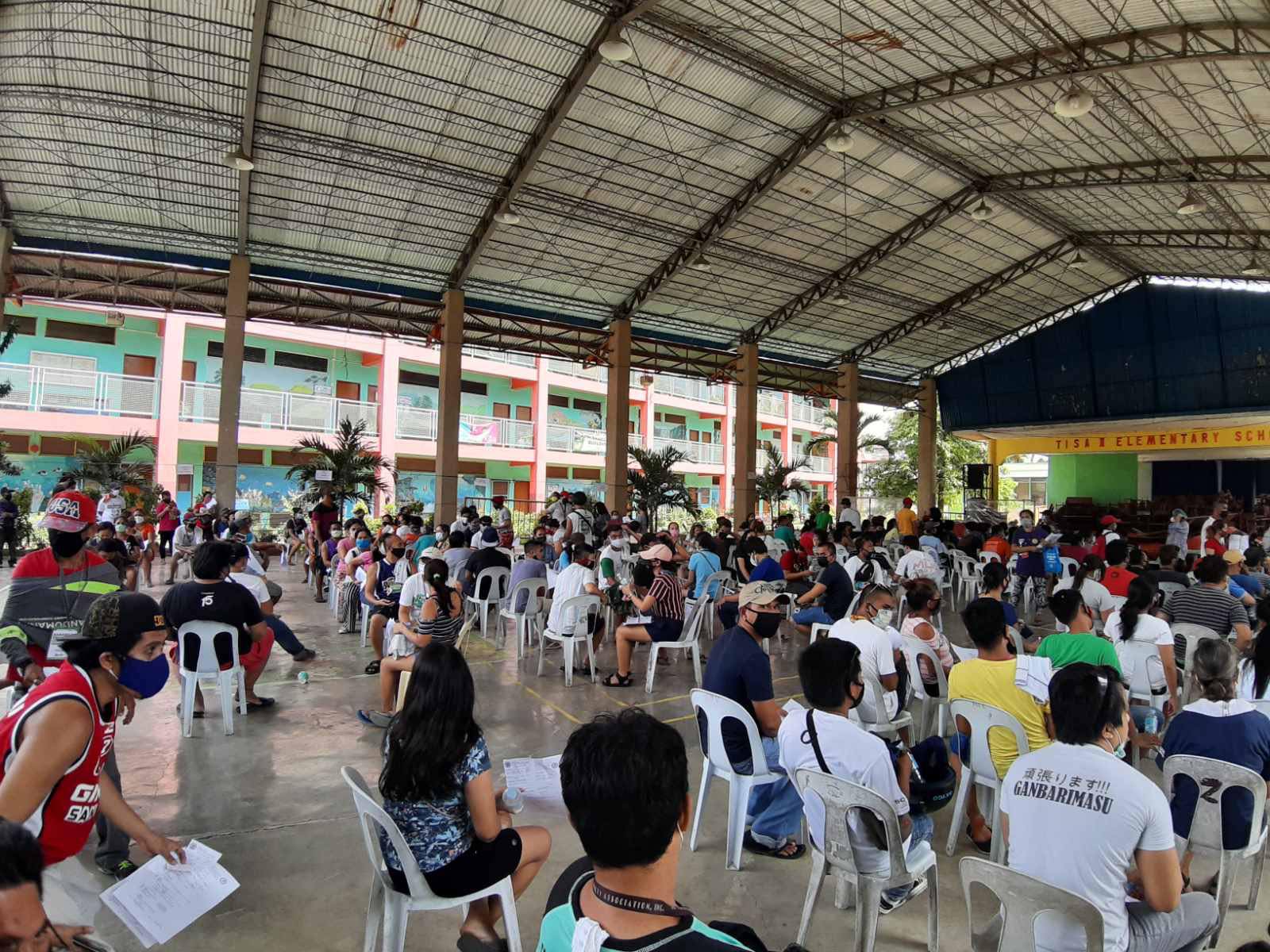
Residents of Barangay Tisa in Cebu City visit the Tisa II Elementary School for the sweeping schedule of the rapid antibody-based mass testing here. | Photo courtesy Tisa Daily Bulletin
CEBU CITY, Philippines —While Mandaue and Lapu-Lapu cities have already surpassed their target, the Department of Health in Central Visayas (DOH-7) chief pathologist, Dr. Mary Jean Loreche, continues to appeal to Cebu City residents anew to participate in the mass rapid testing in order to increase the testing turnout here.
The “sweeping,” or extension of testing schedule, for areas in Cebu City that had low testing turnout during the May 6 to 15 period began this Monday, May 18, 2020. The sweeping schedule will run until Wednesday, May 20.
As the original 10-day testing schedule closed last Friday, May 15, Cebu City’s accomplishment was only at 35.38 percent with 6,205 samples. Cebu City, which has the largest population, land area, and number of COVID-19 cases, supposedly targets to collect 17,536 samples for the rapid testing.
The strategic mass testing in the highly urbanized cities of Cebu, Mandaue, and Lapu-Lapu aims to map out the probable risk areas in the tri-cities as one of the safety measures when it would relax its quarantine protocols.
Cebu City and Mandaue City are still under enhanced community quarantine while Lapu-Lapu City has transitioned last Saturday, May 16, to general community quarantine.
Read more: Although ‘unhappy’ with Lapu’s GCQ status, Chan to respect IATF’s decision
Last Friday, Mandaue City’s accomplishment in the rapid testing was already at 99 percent while Lapu-Lapu City was at 73 percent. The two cities conducted their sweeping on Saturday and Sunday and yielded 109.92 percent and 102.7 percent, respectively, as of May 17.
Mandaue City has collected a total of 12,792 samples while Lapu-Lapu City yielded 10,760 samples.
With this, Loreche said the two cities could already wrap up its community testing and that a report on the total individuals tested and the number of participants that would need to be swabbed for the confirmatory tests using the real-time polymerase chain reaction (PCR) machine might already be available on Tuesday, May 19.
As of May 17, only 1.9 percent of the mass testing participants or 372 individuals will be swabbed.
The rapid testing determines the presence of specific antibodies, an indication of a probable infection. For the COVID-19 rapid tests, they are determining the presence of antibodies Immunoglobulin M (IgM) and Immunoglobulin G (IgG).
Those who tested positive for IgM or a combination of IgM and IgG will be the ones to undergo the confirmatory test.
The presence of IgG means that a person may have been exposed to the virus at one point but their immune system was able to mount its defenses against the virus and will no longer be swabbed or tested using the rt-PCR./dbs

